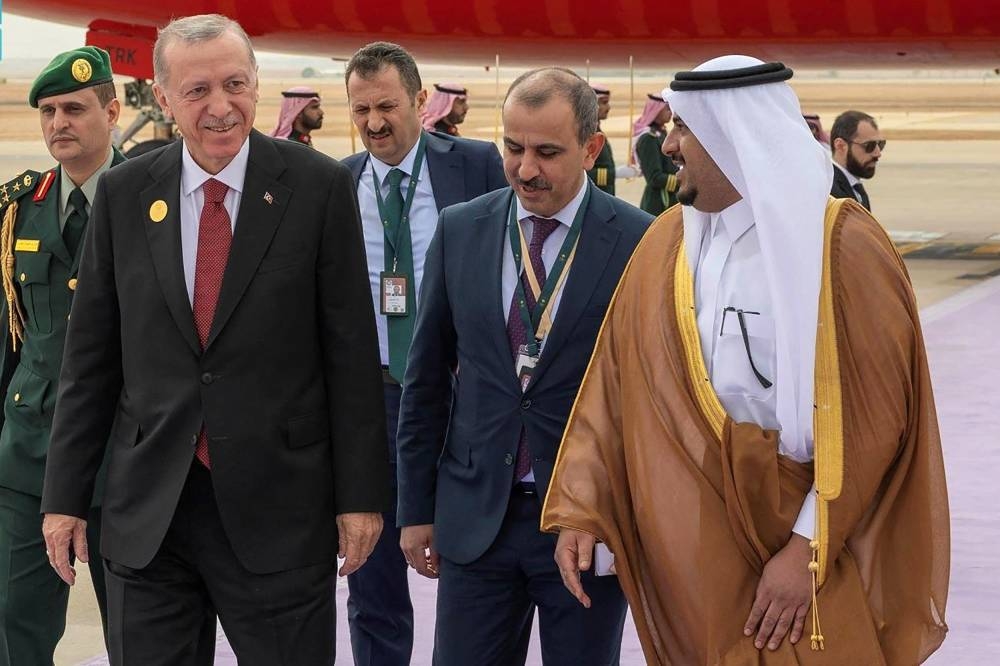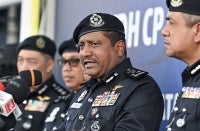Limited Capacities: The OIC's role and perspectives on the Israeli occupation of Palestine

It has been more than a month since Israel began its disproportionate response to Hamas' attacks. It should not come as a complete shock that the so-called liberal western world and her friends are on the side of Israel in a world that is polarised by civilisational discourse; yet, it is remarkable that the rest of the world has chosen to call for a ceasefire in the name of humanity.
Countries that are not part of the Western Hemisphere include those that make up the so-called Muslim world, which stretches from Morocco in the far northwestern corner of Africa to Indonesia in the far southeast corner of Asia. The seeming inactivity of Muslim leaders in the face of the genocide that is openly taking place with the help of western powers has brought these leaders to the centre of public attention.
The Organisation of Islamic Cooperation (OIC) has been criticised for being irrelevant and toothless. The OIC is a global organisation that, similar to the United Nations (UN), is founded on norms but lacks the genuine authority to meddle in the internal or even the external affairs of any nation. It does not imply that the organisation is pointless, but it is unrealistic to expect the OIC to put an end to the horrors when the United Nations, which has 193 member nations, has been unsuccessful.
Although the OIC was established in the wake of the arson attack on Masjid al-Aqsa, the organisation has limited capacities; yet, it has done as good a job as it can given those constraints. Yasser Arafat's reputation as a world figurehead was greatly enhanced as a result of the OIC financial and moral assistance to the Palestinian cause.
The OIC has, in general, served as a mediator in disputes between Muslim nations and as an intervenor in the internal affairs of non-Muslim countries when those governments have targeted the Muslim minority. This is where the difficulty rests. Since Israel is not a Muslim nation, it is not a member of the OIC. Second, depending on who you ask, this is seen as a war between two unequal entities instead of a civil war in the same vein as those that have occurred in Myanmar and Xinjiang. Neither the OIC nor any other organisation or country in the world can coerce Israel into stopping this genocide - except perhaps for the United States of America.
Countries that voted in the UN general assembly calling for a sustained humanitarian truce are trying to find the appropriate balance of solving this problem without choosing violence as the world awaits for the end of American hegemony to arrive in the next few decades.
The situation is much more terrible for Muslims since, despite the fact that their governments and people are vocal supporters of the Palestinian cause, they are also entangled in a complex web of economic and military links and dependencies, which severely restricts the amount of damage they are able to bring to Israel or the United States.
Nevertheless, OIC member states had a total GDP of US$24 trillion in the year 2020, which is equivalent to approximately 22 per cent of the GDP of the entire planet. Because it accounts for one fifth of the world economy, the Muslim world has the potential to send a more powerful statement if they come together. There was precedence when King Faisal of Saudi Arabia declared an oil embargo directed at countries that had supported Israel during the Yom Kippur War in 1973. It's possible that this is why a number of Muslim nations have agreed to hold an emergency meeting of the OIC to discuss the current conflict.
I believe that the majority of countries do not desire to see this conflict escalate into a regional war that is supported by major powers. When it comes to making a case for military intervention, Malaysia, which is classified as a middle power, is not exactly in the strongest position. Despite the fact that we feel terrible for the suffering of Gazans and the prospect of another "Nakba" – the horrific expulsion and dispossession of Palestinians in 1948 in which 700,000 Palestinians were forcibly relocated – sending boots on the ground may not be the solution. As a result of this, our prime leader has been accused of not doing enough to address the situation.
Anwar Ibrahim, author of The Asian Renaissance, who calls for a progressive Asian society without losing its values and religion, is possibly in the worst position he could find himself in. On the one hand, there are those who are skeptical about his dedication to Palestine due to the fact that he has a positive reputation among Malaysia's western allies. On the other hand, western countries are attempting to silence him because he does not label Hamas as a terrorist organization.
Alas, Anwar may have the influence, along with his colleagues in Turkey, Saudi Arabia, Qatar, the United Arab Emirates, Iran, and Indonesia, amongst others, to find a solution that is in the best interest of the Palestinian people. This is because of the positive relationships that Anwar maintains with countries all over the world, from east to west. It might be in the form of economic sanctions, or it could take place in the context of bilateral diplomacy.
Will Malaysia become more marginalised as a result of its firm stance on the Palestinian issue? I don't think so. To begin, Malaysia is on the side of the majority of nations that support an early ceasefire in Gaza. They want to see an end to the violence as soon as possible.
Second, looking back at history, Malaysia previously had a prime minister who was more critical of Israel and Zionism. Despite this, Malaysia has continued to flourish as a nation because it is not a country that can be disregarded.
There is a possibility that we will receive a reprimand, but it is not likely to have a lasting impact.
More importantly, we need to be on the right side of history, and that is fighting oppression and colonisation for the sake of humanity. Hopefully, the sense of brotherhood will cascade towards people of all races, religions and nationalities within our border as well.
Download Sinar Daily application.Click Here!















